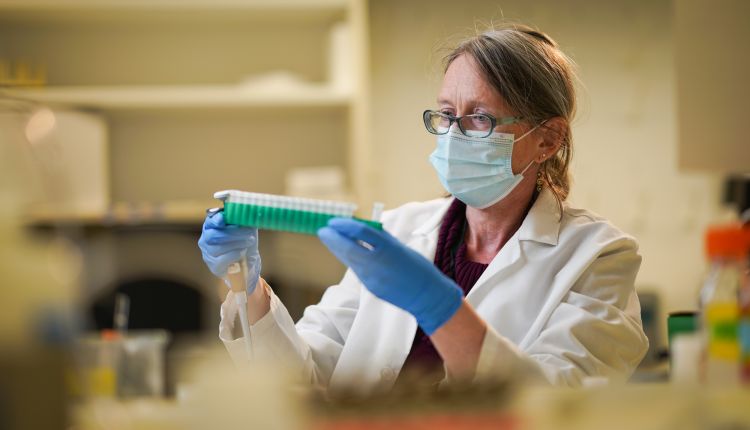Biology of aging research essential to understanding vulnerability to diseases

Cancer, diabetes, cardiovascular disease, and neurodegenerative diseases have seemingly little in common. But researchers like Rozalyn Anderson, PhD, associate professor, Geriatrics and Gerontology, and Dudley Lamming, PhD, associate professor, Endocrinology, Diabetes and Metabolism, look at these diseases through one common lens, aging - the biggest risk factor across all of these conditions.
While studying the biology of a disease is important and necessary to better treat and care for patients, Dr. Anderson explains that having a better understanding of how the body ages can help one understand what creates a risk factor for a disease.
Biology of aging research seeks to understand the factors that make the body vulnerable to age-related diseases in the first place.
“We need to start looking at age, the biggest risk factor that is common to all these diseases, and try and figure out what is happening during aging that leads to these diseases becoming more prevalent in older populations,” she says.
Additionally, Dr. Lamming explains how biology of aging research looks to improve the quality of life as one ages, as well as to treat a disease.
“Adding years to someone’s life is great, but we want to make sure those are healthy years,” he says.
In the Department of Medicine, Dr. Anderson and other aging researchers hope to open up aging studies to other disciplines to help each other with research, look for funding opportunities together, train learners, and create an overall collaborative environment to incorporate aging into research.
“If you think about aging in the context of your program, you really stand to gain,” she says.
The expansion of this research could lead to a better understanding of molecular mechanisms underlying aging, strengthen collaborations between basic science and clinical researchers and accelerate the discovery of new therapies for common aging-associated diseases.
Between Department of Medicine researchers, the T32 Training Grant and the Geriatric Research Education and Clinical Center (GRECC) at the VA, there are, “a lot of capabilities that can be deployed for aging research,” according to Dr. Lamming.
Among the many cross-collaborative studies at UW-Madison involving investigators focused on the biology of aging research includes the successful caloric restriction study with Dr. Anderson and Ricki Colman, PhD, Endocrinology and Reproductive Physiology Program, showing the reduced prevalence of age-related disorders in rhesus monkeys.
In addition to faculty members having the opportunity to research the biology of aging, trainees can also learn more about this discipline.
The T32 Training Grant: Biology of Aging and Age-Related Diseases program, led by Sanjay Asthana, MD, professor, Geriatrics and Gerontology, and Dr. Anderson, prepares pre- and post- docs from a wide variety of disciplines and diverse backgrounds to conduct research in the basic biology of aging and age-related diseases.
With various labs, training programs, and other professional organizations available, researchers in aging hope to see the field grow and become more commonplace throughout medical disciplines. There is already a large network of aging-adjacent researchers at UW-Madison, spanning departments and schools; the goal is to formalize this, making sure that aging is a priority in biomedical research across campus.
“Our goal is to foster biology of aging research, find common areas, leverage the overlap, and create an infrastructure so the sum is greater than the parts,” Dr. Anderson says.
Banner: Rozalyn Anderson, PhD, in her lab. Credit: Clint Thayer/Department of Medicine.